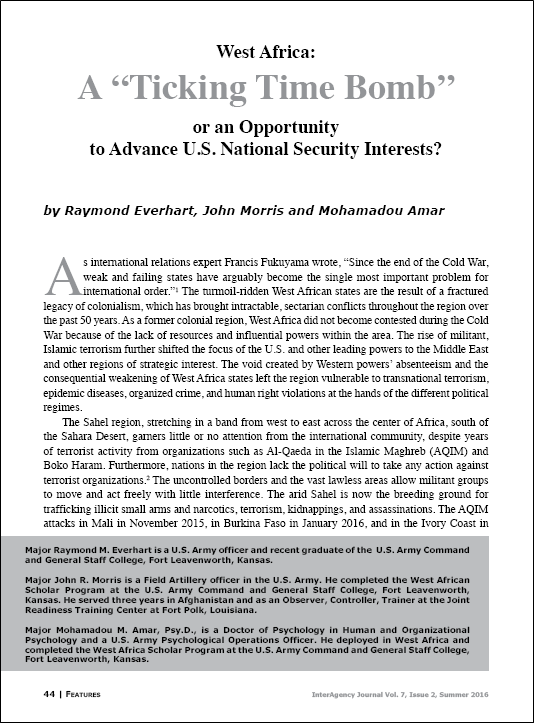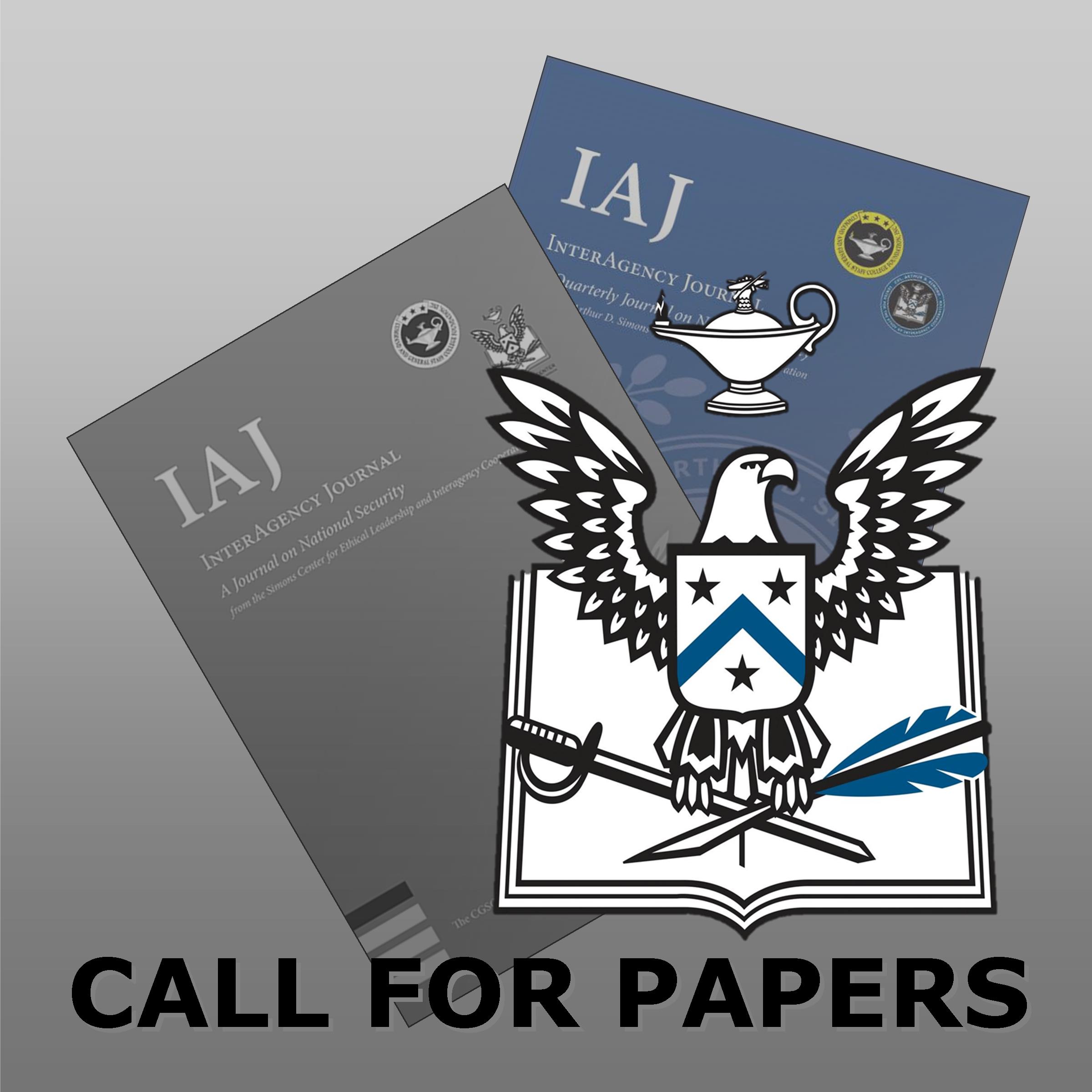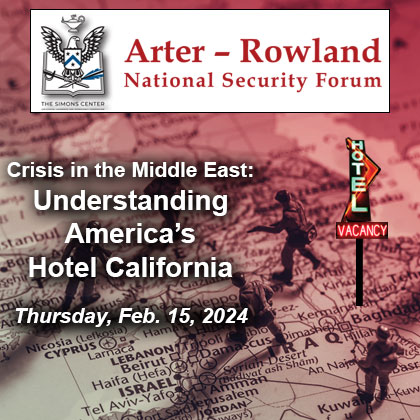Featured Article: A Ticking Time Bomb…
Featured article:
West Africa: A “Ticking Time Bomb” or an Opportunity to Advance U.S. National Security Interests?
by Raymond Everhart, John Morris, and Mohamadou Amar
As international relations expert Francis Fukuyama wrote, “Since the end of the Cold War, weak and failing states have arguably become the single most important problem for international order.” The turmoil-ridden West African states are the result of a fractured legacy of colonialism, which has brought intractable, sectarian conflicts throughout the region over the past 50 years. As a former colonial region, West Africa did not become contested during the Cold War because of the lack of resources and influential powers within the area. The rise of militant, Islamic terrorism further shifted the focus of the U.S. and other leading powers to the Middle East and other regions of strategic interest. The void created by Western powers’ absenteeism and the consequential weakening of West Africa states left the region vulnerable to transnational terrorism, epidemic diseases, organized crime, and human right violations at the hands of the different political regimes.
The Sahel region, stretching in a band from west to east across the center of Africa, south of the Sahara Desert, garners little or no attention from the international community, despite years of terrorist activity from organizations such as Al-Qaeda in the Islamic Maghreb (AQIM) and Boko Haram. Furthermore, nations in the region lack the political will to take any action against terrorist organizations. The uncontrolled borders and the vast lawless areas allow militant groups to move and act freely with little interference. The arid Sahel is now the breeding ground for trafficking illicit small arms and narcotics, terrorism, kidnappings, and assassinations. The AQIM attacks in Mali in November 2015, in Burkina Faso in January 2016, and in the Ivory Coast in March 2016 claimed the lives of 68 people, mostly civilians, including several foreigners. Additionally, AQIM’s audacity to attack in the southern, Christian-dominated parts of the Ivory Coast might catalyze an outbreak of religionbased conflict given the country’s recent history of civil strife between its Christian and Muslim populations.
In the past year, Boko Haram, which pledged allegiance to The Islamic State of Iraq and Syria (ISIS) in 2015, flexed its muscles and expanded its reach, attacking beyond its normal areas of operation in Nigeria and crossing into neighboring countries…
Read the full article
West Africa: A “Ticking Time Bomb” or an Opportunity to Advance U.S. National Security Interests? PDF
Download the complete edition
IAJ 7-2 (Summer 2016) PDF
IAJ 7-2 (Summer 2016) ePub
Major Raymond M. Everhart currently serves as an ARSOF Support Operations Team Chief for the 528th Sustainment Brigade out of Fort Bragg, North Carolina and is a recent graduate from the U.S. Army Command and General Staff College. He holds a Bachelor’s Degree in Business Administration from Catawba College in Salisbury, North Carolina.Major John R. Morris is a Field Artillery officer in the U.S. Army. He completed the West African Scholar Program at the U.S. Army Command and General Staff College, Fort Leavenworth, Kansas. He served three years in Afghanistan and as an Observer, Controller, Trainer at the Joint Readiness Training Center at Fort Polk, Louisiana.
Major Mohamadou M. Amar, Psy.D., is a Doctor of Psychology in Human and Organizational Psychology and a U.S. Army Psychological Operations Officer. He deployed in West Africa and completed the West Africa Scholar Program at the U.S. Army Command and General Staff College, Fort Leavenworth, Kansas.

Posted: September 20, 2016 by Simons Center
"*" indicates required fields


